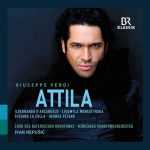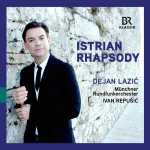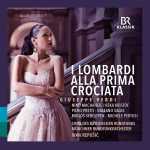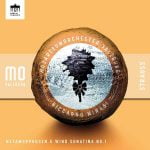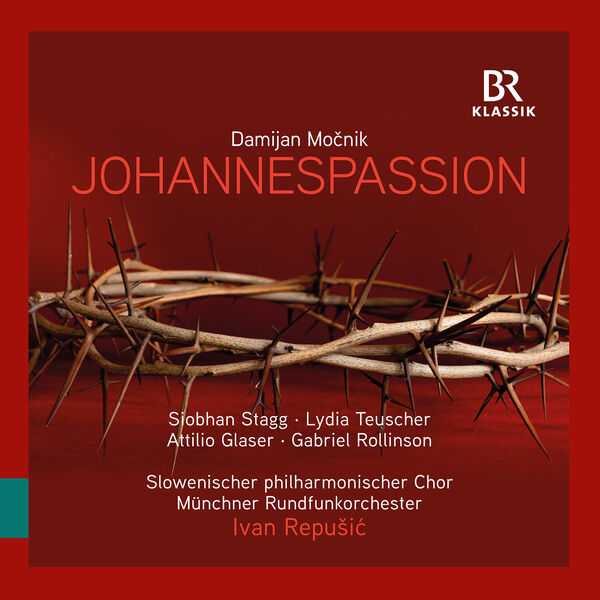

Composer: Damian Močnik
Orchestra: Muenchner Rundfunkorchester
Conductor: Ivan Repušić
Format: FLAC (tracks)
Label: BR Klassik
Catalogue: 900343
Release: 2023
Size: 249 MB
Recovery: +3%
Scan: cover
Johannes-passion
01. In principio erat verbum
02. Festum paschale
03. Gethsemani
04. Petrus
05. Pilatus
06. Johannespassion: Amor in aeternum
Damijan Močnik composed his Johannespassion (“St. John Passion”) in 2011 in Ljubljana, Slovenia, for large orchestra, soloists, and chorus. This 2022 version is a bit pared down, featuring woodwind, percussion, and strings along with the chorus. The effect of this is to highlight the percussion, and indeed, this work is a percussionist’s dream, right from the big timpani strokes that mark the beginning of the narrative. To offer a St. John’s Passion in the face of the examples by Bach and Schütz takes nerve, but Močnik’s work can stand on its own. He combines a melodic idiom rooted in the medieval era, especially in Gregorian chant, with an operatic dynamic. The setting is stark and monumental, even in the reduced setting. Močnik deploys six soloists, including a female Historicus (or narrator); soprano Siobhan Stagg has a heavy load and sustains dramatic interest. Jesus is a ponderous bass-baritone. There is a large cast of nine solo parts, with two soloists taking two parts each. Conductor Ivan Repušić, leading the Munich Radio Orchestra and Slovenian Philharmonic Choir, is equal to the music’s ambitions and to the challenge of holding multiple large ensembles together. Močnik is a composer who once conducted a choir of 1,700 singers, and this is music for those who value grand gestures. They will find this Passion setting convincing and fresh.
“For this CD production, Damijan Močnik has created a reduced version of his “”St. John Passion”” for woodwind, percussion and strings, originally composed with a considerably larger orchestra. The recording took place on March 5, 2022 in Studio 1 of the Bayerischer Rundfunk. Authenticity of performance is guaranteed not only by the Slovenian Philharmonic Choir but also by the Croatian conductor Ivan Repušić, who as chief conductor of the Münchner Rundfunkorchester energetically promotes contemporary music from the Western Balkans. The time and place chosen for the premiere of Damijan Močnik’s “”St. John Passion”” – Maundy Thursday 2011 in the largest hall in Ljubljana – make it clear what universal aspirations the work wishes to fulfil for believers and music lovers alike. This also includes the use of the Latin language and the decision to dispense with folkloristic local colour, both of which have undoubtedly enhanced the work’s broader reception. In addition, this “”St. John Passion”” seeks a connection to much older traditions, such as Gregorian chant, early polyphony and old movement techniques including falsobordone and organum. The composer focuses on the words from St. John’s Gospel that Jesus gives to his disciples at the Last Supper: “”A new commandment I give to you, that you love one another; as I have loved you, that you also love one another. By this all will know that you are my disciples, if you have love for one another.”” These words to his listeners turn out to be the decisive message of the Passion story. In Slovenia, the name Damijan Močnik is associated with a lively and young choral music scene, in which he has made a reputation for himself as a teacher, conductor and composer – for example, with the system of a “”choir pyramid””, with which, over 25 years, he has been able to inspire more than 1,700 singers to sing together at the traditional St. Stanislaus Diocesan Grammar School in Ljubljana. Močnik wants to create “”a triangle between composer, performer and listener. A composer who also performs his works can have much more authentic contact with his audience.” In general, contact with young people is very important to him; his youth opera from 2018, for example, gained him a lot of attention. In addition, he often composes choral works such as masses, hymns and motets, which have become known far beyond the borders of his homeland. During his musical education, Močnik also sought contact with the greats of the choral music scene, for example during a study visit with Eric Ericson in Sweden. In his own country, as early as 1995, he gained public attention when he won a composition competition on the occasion of the papal visit of John Paul II, with the choral movement “”One thousand years have already passed””.”
